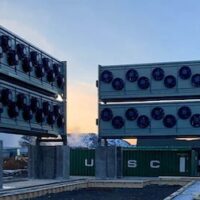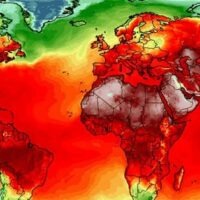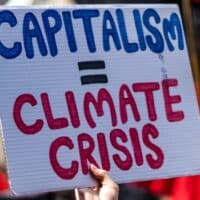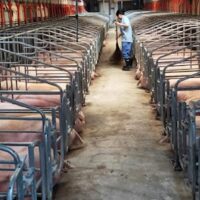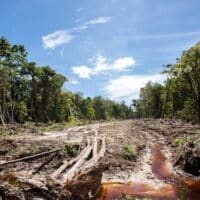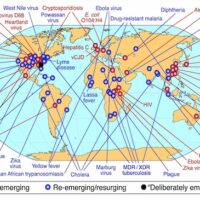-
Can carbon dioxide removal save the climate?
The concentration of carbon dioxide in the world’s atmosphere is now very close to 429 parts per million.
-
Global heating isn’t just getting worse. It is getting worse faster.
Surplus heat is accumulating in the Earth system at an accelerating rate.
-
1.5 is dead: How hot will the Earth get?
It may be ‘technically possible,’ to keep global heating below 1.5 degrees, but it isn’t going to happen..
-
Why we need to stop capitalism’s runaway train: Interview with Ian Angus
Michael Lavalette spoke to leading ecosocialist Ian Angus about capitalisms’ ecocide, Trump and what we need to do stop global heating.
-
The deadly environmental toll of super-yachts and private jets
Every week, the ultra-rich emit more greenhouse gas than the poorest people produce in a lifetime.
-
Capitalism’s New Age of Plagues (Part 8): Deadly heat
‘Climate change has already caused mass death on a pandemic-like scale’
-
Capitalism’s New Age of Plagues. Part 7: Wildlife farms and wet markets
Commercial farming of wild animals as luxury food for the rich triggered a global pandemic.
-
Capitalism’s New Age of Plagues (Part 6): China’s livestock revolution
The near-universal adoption of mass production in confined facilities makes pandemics all but inevitable.
-
Capitalism’s new age of plagues (Part 5): The pandemic machines
In March, Cal-Maine Foods, the largest U.S. egg producer, reported that chickens in one of its Texas egg factories had contracted Highly Pathogenic Avian Influenza Type A–better known as Bird Flu. To stop the disease from spreading, the corporation slaughtered 1.6 million birds.
-
Capitalism’s New Age of Plagues (Part 4)
Agribusiness assaults on tropical forests are driving the emergence of new diseases and epidemics.
-
Capitalism’s New Age of Plagues (Part 3)
Covid-19 was the least unexpected pandemic in history. Why were governments not prepared?
-
Top geology body denies appeal, rejects Anthropocene proposal
Ruling ends formal discussion in official geological organization.
-
Capitalism’s New Age of Plagues (Part 2)
Relentless evolution creates ‘resilient, dangerous foes’ in the Anthropocene.
-
Capitalism’s New Age of Plagues (Part 1)
In our time, pandemics will occur more often, spread more rapidly, and kill more people.
-
Anti-Anthropocene vote is ‘null and void’
Commission chairs say organizers of ballot violated statutes and ignored scientific evidence.
-
Nature’s heartbeat, visualized
A stunning animation displays the pulse of the Earth System’s metabolism.
-
Paul Burkett, rest in power
In memory of Paul Burkett, Marxist scholar and jazz musician, 1956-2024.
-
Introduction to the Brazilian edition of Facing the Anthropocene
Ian Angus’s Facing the Anthropocene: Fossil Capitalism and the Crisis of the Earth System (Monthly Review Press, 2016) continues to be well received worldwide. This is the introduction to the most recent edition released in the autumn of 2023—a Portuguese translation from the noted Brazilian publishing house Boitempo.
-
Introduction to the Brazilian edition of ‘Facing the Anthropocene’
Important steps towards formally defining a new epoch in Earth System history.
-
Scientists choose site to mark the start of the Anthropocene
Tiny Crawford Lake, near Toronto, holds a detailed record of radical global change.

